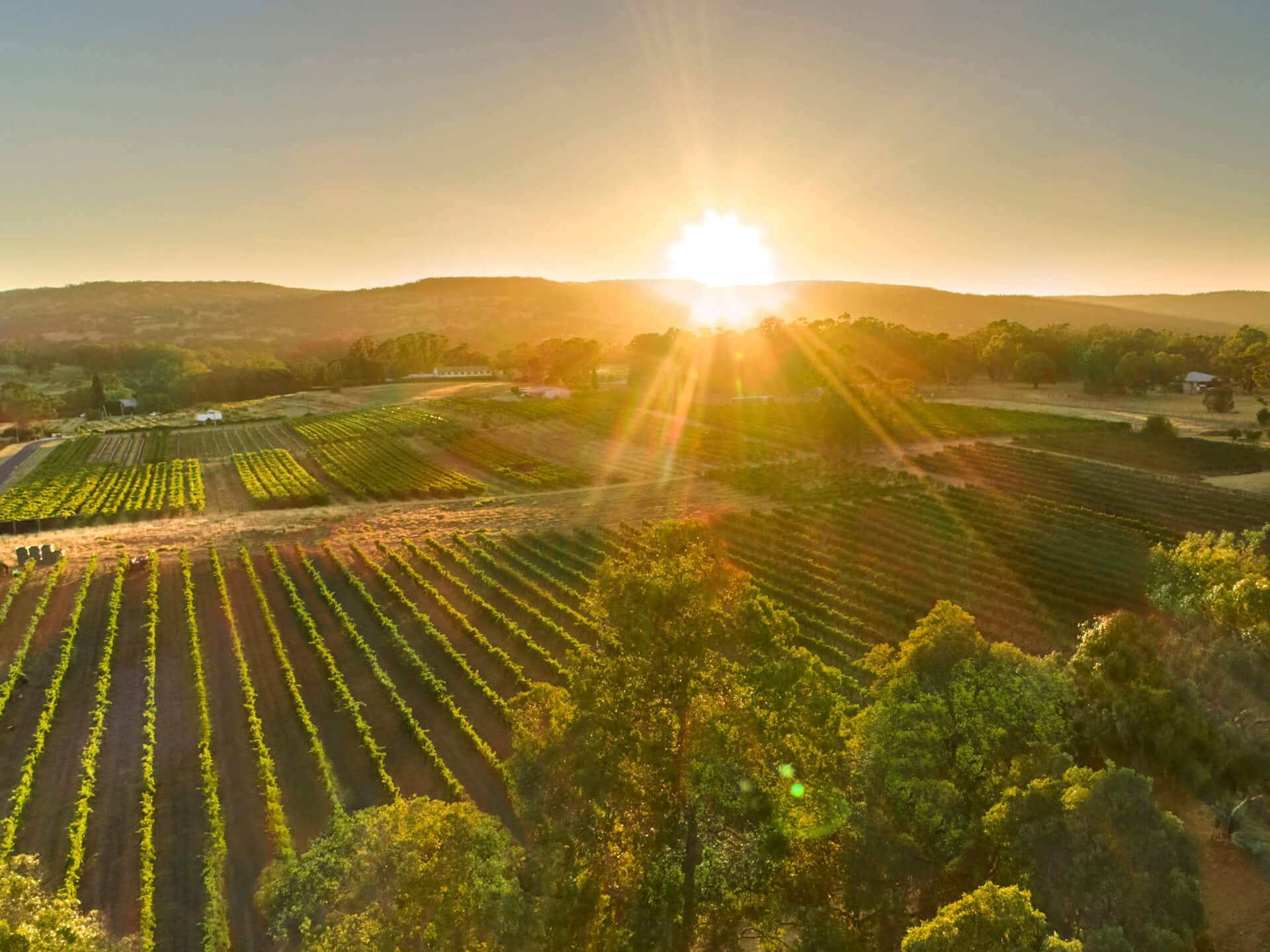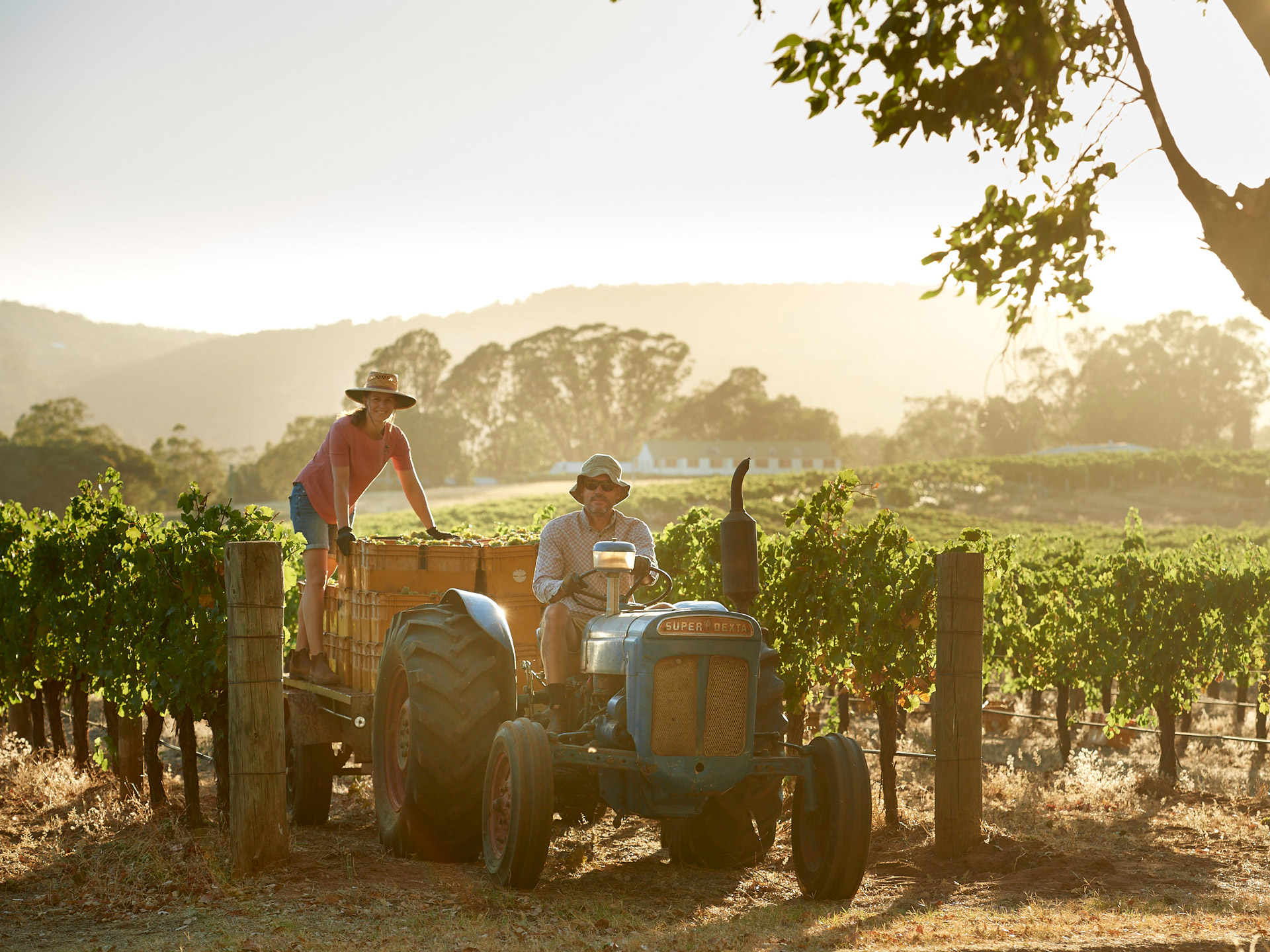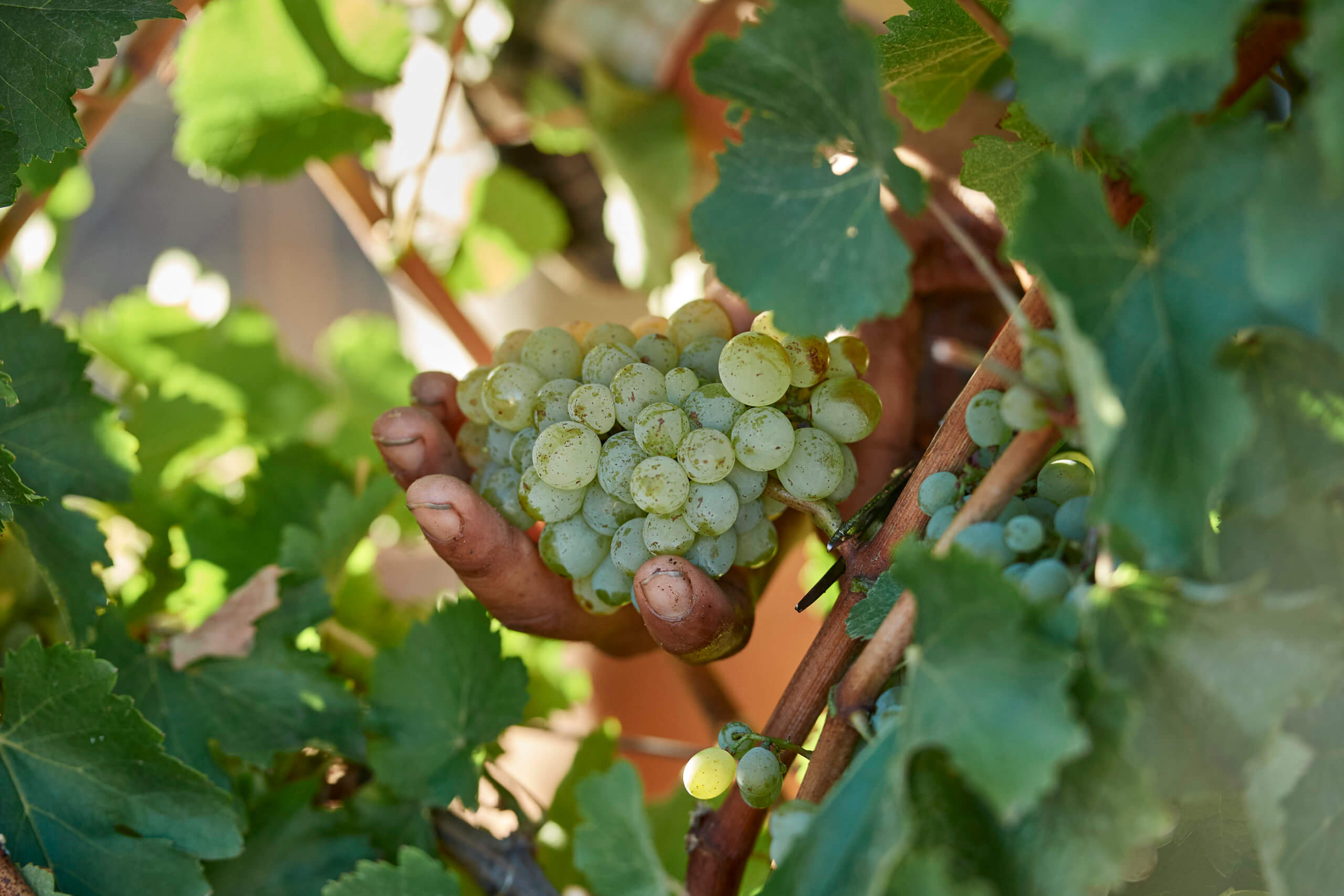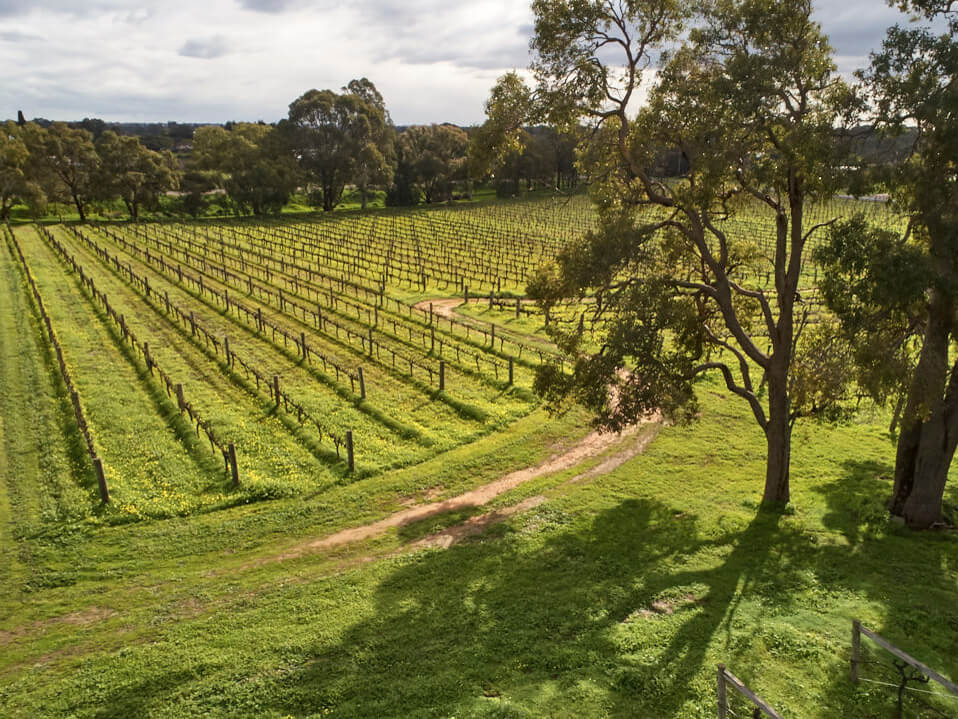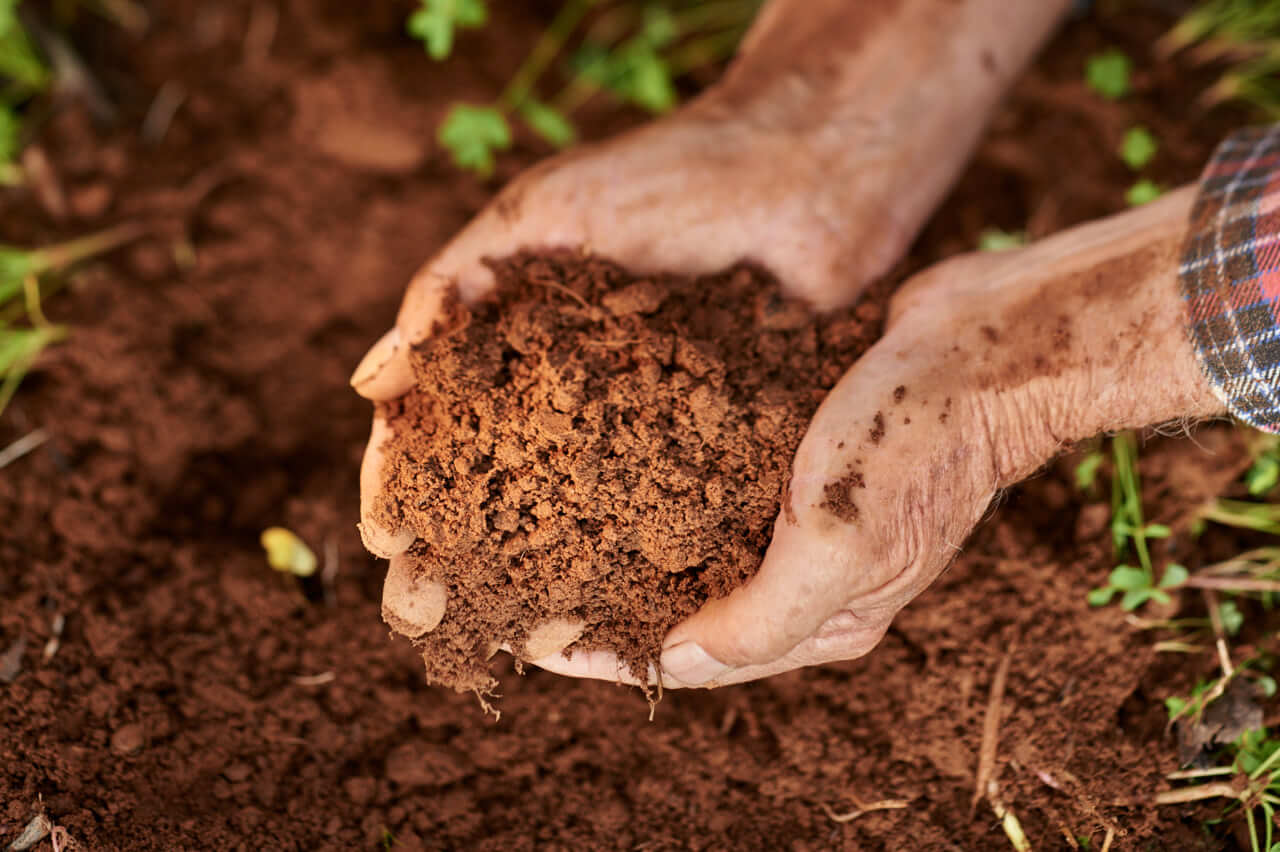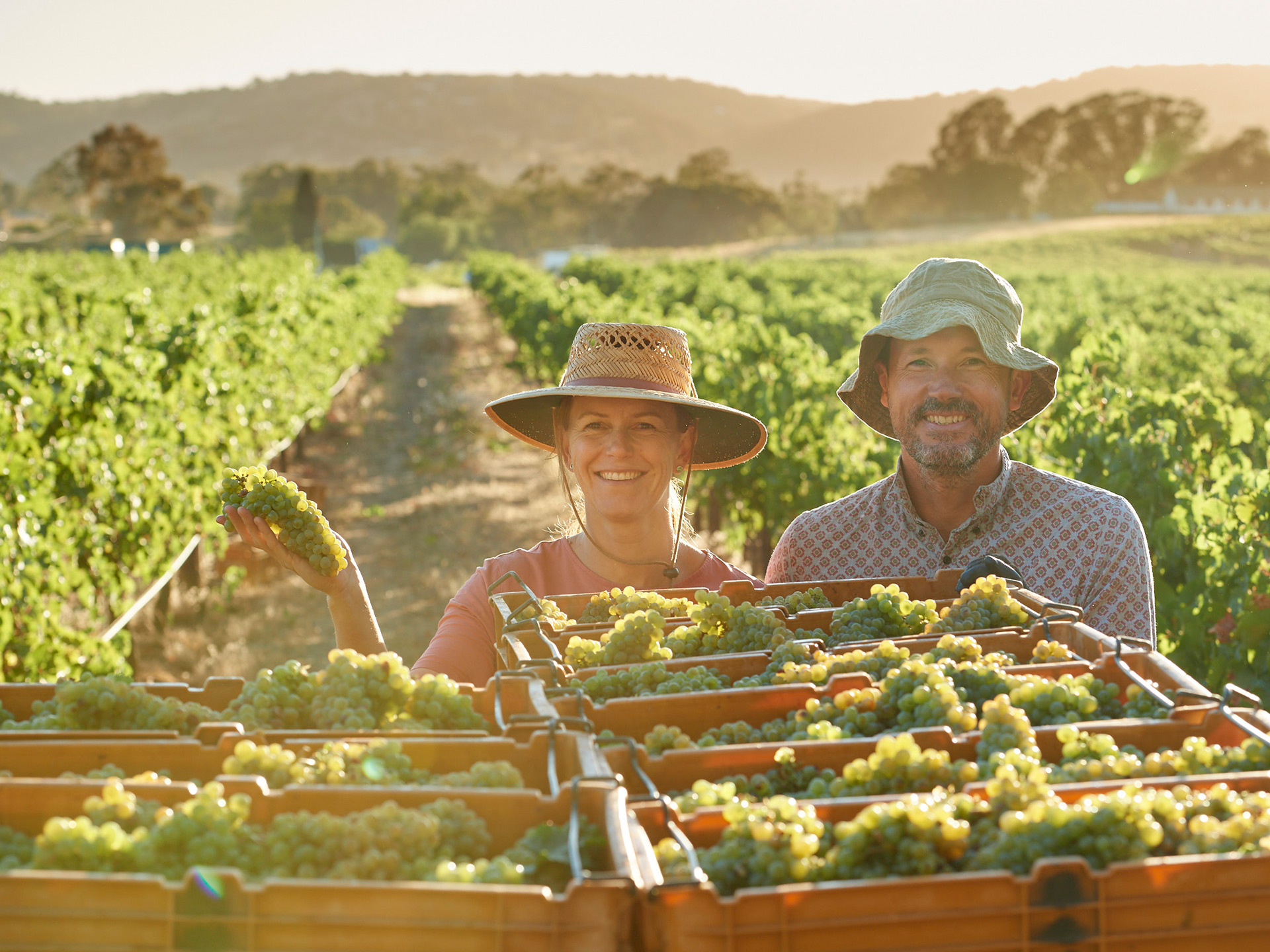While distinctly compact, Rocket’s Vineyard is making a bold statement in the renaissance of the Swan Valley. Rob and Genevieve Mann are carrying the family name – arguably the most historically important one in the West’s wine world – to new heights, championing the regional white hero, chenin blanc, and making a midweight Swan red from cabernet sauvignon, tempranillo and malbec. Certified organic, the site has a compact 3 hectares of vines, with the emphasis placed on doing most of the work themselves and making wine from the ground up to reflect, site, varieties, region and vintage.
The Mann name is a storied one in wine circles and, and especially in Western Australia. Jack Mann, of Houghton’s fame, stands alongside the likes of Max Schubert, Maurice O’Shea and John Vickery as giants of 20th century Australian winemaking, true trailblazers. His grandson Rob Mann is carrying on that family legacy, and like his grandfather is intent on proving the merits of the Swan Valley.
The Swan is one of Australia’s oldest wine regions, with the first vines planted in 1829, but it fell out of fashion in the West during the latter half of the 20th century, in direct opposition to the glamorous rise of Margaret River. The Swan is making its mark again, though, and in no small part to the efforts of Rob and Genevieve Mann.
The husband-and-wife team, both celebrated winemakers, are based out of Rob’s father’s vineyard, affectionately labelled Rocket’s Vineyard. Tony ‘Rocket’ Mann was a schoolteacher and legendary state cricketer (he was also the first Australian to score a century in Test Cricket as a nightwatchman, playing four tests in total) and later manager of the WACA.
“Rocket’s Vineyard has been lovingly farmed by my father for 35 years,” Mann says. “Every vine planted, trained and pruned, every nasty weed pulled by hand, every bucket of grapes inspected and sorted at harvest, all with the aim of wanting to produce the very best fruit.”
When the couple returned from the USA, after a stint running Napa’s Newton, they took over the management of the vineyard. “Gen and I assumed direct management of the vineyard in 2018 …under a dry grown, organic farming philosophy,” says Mann.
The vineyard is situated about 500 metres from and 30 metres above the Avon River, which turns into the Swan River about a kilometre downstream, where the tidal influence begins. The soil is composed of ancient alluvial deposits and a rich, deep red loam where the chenin is planted, with loam over clay at the top of the vineyard for the red varieties. “The beauty of this site is the ability to dry farm and the resulting character in the wines… and special massale selections curated over the last 100 years by my family, which are well-suited to the local environment.”
The vineyard consists of around 3 hectares of vines, with the oldest being a mere 0.2 hectares of cabernet sauvignon planted in 1986. That was from an old Houghton massale selection preserved by the family that dates to the 1930s, while 1.6 hectares of chenin blanc was planted in 1992 from a Noack family massale selection, circa 1906. The remainder is made up of tempranillo (2002) and malbec (2014) – the later again a family massale selection from the ’30s.
It is the heat of the Swan that has been seen as a hand break for premium wine production, but with the right varieties, vine material, viticulture and philosophy of wine style, its potential is immense, says Mann. “We are amongst the hottest (and coolest) and oldest wine regions in the country, and our aim has been to promote vibrancy, freshness and sustainability in the fruit and ultimate wine produced, and we have been genuinely thrilled with the improvements to date and what we might expect going forward.”
Rocket’s Vineyard is the first vineyard in the Swan Valley to be certified through Sustainable Winegrowing Australia and it is the second to achieve organic certification. No herbicides have ever been used on the property and, naturally, all other systemics were discontinued under the organic regimen.
“When we moved to organic farming and first converted our old chenin from spur to cane pruning my father was worried that we killed all the vines,” says Mann. “He later explained after seeing the results that our efforts had breathed life back into the vineyard and potentially the region.”
The shift in pruning was a result of the now 30-year-old vines needing regeneration. The results of the three-year program have seen palpable benefits, including thicker grape skins, looser-knit bunches, improved airflow and lower yields, resulting in increased disease resistance and intensified fruit concentration. The more open structure also allows for better penetration for the organic sprays, making them more effective and thus requiring less spray and fewer applications. And the results have really paid off.
“Gen and I looked at our chenin blanc this year in tank prior to bottling,” Mann says. “We then looked at each other with that enquiring expression as to who should comment first, and I broke quietly suggesting that I thought the wine was pretty amazing. Gen responded in the same manner, though not wanting to be boastful, describing the wine as the culmination of five years’ hard work – and thank God it looks awesome!”
The cabernet was also restructured, though in that case they were converted from a V-trellis to bush vines, which has resulted in dappled light penetration in a more even manner, with no overexposed bunches. The resultant even ripening has allowed harvest at the same time as the malbec and tempranillo “to create a unique medium-bodied Swan Valley red wine.”
Additionally, the viticulture has become responsive, rather than prescriptive, with soil and petiole tests taken to determine nutritional deficiencies and instruct regenerative measures. Where bare earth between the rows previously saw the heat absorbed into the earth, cover crops are now grown over winter and spring, then slashed to return organic matter to the soil, retain soil moisture and reduce interrow temperatures. “Cover crops over winter and spring have also provided for insectarium habitats increasing the biodiversity and natural predator populations in the vineyard,” says Mann.
With the switch from irrigation to dry growing, the water usage on the vineyard has been reduced to essentially support the organic spraying program. The general maturity of the vines makes this possible, with a degree of resilience from the deep roots, and it has also resulted in naturally regulated lower yields and enhanced fruit concentration. Mann also notes that the fruit better expresses the vintage, which they see as essential to conveying site, variety and region.
This striving to enhance the premium nature of their wines naturally has boosted their economic sustainability, keeping the vineyard viable and Mann’s mother (Tony Mann passed away in 2019) on the property rather than having to sell. That inducement to divest from grape-growing is one that many in the Swan are taking, with the region in danger of being swallowed by Perth’s growing urban sprawl.
“A large proportion of old vineyards have been removed in the Swan Valley over the last few decades,” says Mann. “Larger properties have been subdivided for project housing, horse agistment, tourism ventures and other agricultural uses. This has primarily occurred as the next generations within families have not been financially able help in the management of the vineyard or purchase the land from older generations.”
The Manns have intentionally stayed small, ensuring that they can perform the majority of the work themselves, while firmly focusing on increasing the value of what they produce. “A small amount of chenin blanc fruit is sold to another local producer,” notes Mann. “Due to the rising profile of chenin blanc and the increase in demand for premium fruit, we have been able to increase the value of the fruit sold since taking control of the vineyard from $750 a tonne to $2,300 a tonne.”
It’s clear that beyond the natural ambition to make the best wine from the ground up, Rob and Genevieve Mann take the matter of elevating the Swan Valley both very personally and very seriously. “Our family’s connection to the land and the region is something we are very proud of. Creating a wine business that helps us celebrate our history while defining a sustainable future is very fulfilling. Ultimately, we love seeing people enjoying our Swan Valley wines and respecting the long history and integrity that that brings.”

